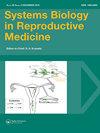Bioethics in human embryology: the double-edged sword of embryo research
IF 2.1
4区 医学
Q3 ANDROLOGY
引用次数: 1
Abstract
Abstract There has been a significant increase in the use of assisted reproductive therapies (ARTs) over the past several decades, allowing many couples with infertility to conceive. Despite the achievements in this field, a mounting body of evidence concerning the epigenetic risks associated with ART interventions such as ovarian hormonal stimulation, intracytoplasmic sperm injection (ICSI), and in vitro culture (IVC) of oocytes and embryos has also emerged. Induced development of multiple follicles, the IVC media itself, and extended culture may alter the epigenome of both gametes and embryos, resulting in yet to be fully understood developmental, postnatal, and adult life health consequences. Investigators have attempted to decipher the molecular mechanisms mediating ART-induced epigenetic changes using either human samples or animal models with some success. As research in this field continues to expand, the ethical responsibilities of embryologists and researchers have become critically important. Here, we briefly discuss the ethical aspects of ART research, concentrating on the constraints arising from the perceived 'unnaturalness' of many of these procedures. Secondly, we focus on the bioethics and morality of human embryo research in general and how ethically acceptable model systems may be used to mimic early human embryogenesis. Lastly, we review the 14-day culture limit of human embryos and the notion that this rule could be considered of taken into account using new technologies and cues from animal models. The ‘black box’ of early post-implantation embryogenesis might be revealed using embryo models. As long as this distinct moral line has been drawn and closely followed, we should not fear scientific growth in embryo research. Although in vitro fertilization (IVF) is ethically acceptable, research with human embryos to improve its success raises serious ethical concerns that are in need of constant revisiting. Glossary index: Moral status: the ascription of obligations and rights to embryos on the basis of sentience; Sentience: the capacity of the developing embryo to experience feelings and sensations, such as the awareness of pain; Ectogenesis: the growth of the embryo in an artificial environment outside the mother's body.人类胚胎学中的生命伦理学:胚胎研究的双刃剑
摘要在过去的几十年里,辅助生殖疗法的使用显著增加,使许多不孕夫妇得以怀孕。尽管在这一领域取得了成就,但也出现了越来越多关于ART干预相关表观遗传风险的证据,如卵巢激素刺激、卵母细胞内单精子注射(ICSI)以及卵母细胞和胚胎的体外培养(IVC)。多个卵泡的诱导发育、IVC培养基本身和扩展培养可能会改变配子和胚胎的表观基因组,导致发育、出生后和成年后的健康后果尚不完全清楚。研究人员试图使用人类样本或动物模型来破译介导ART诱导的表观遗传学变化的分子机制,并取得了一些成功。随着这一领域的研究不断扩大,胚胎学家和研究人员的伦理责任变得至关重要。在这里,我们简要讨论了ART研究的伦理方面,重点讨论了其中许多程序的“不自然”所产生的限制。其次,我们关注人类胚胎研究的生物伦理和道德,以及如何使用伦理上可接受的模型系统来模拟早期人类胚胎发生。最后,我们回顾了人类胚胎的14天培养极限,以及可以使用新技术和动物模型的提示来考虑这一规则的概念。植入后早期胚胎发生的“黑匣子”可以通过胚胎模型来揭示。只要这条明确的道德线已经划定并严格遵循,我们就不应该害怕胚胎研究的科学发展。尽管体外受精(IVF)在伦理上是可以接受的,但对人类胚胎进行研究以提高其成功率,引发了严重的伦理问题,需要不断重新审视。词汇索引:道德地位:在感知的基础上对胚胎的义务和权利的归属;感觉:发育中的胚胎体验感觉和感觉的能力,例如对疼痛的感知;胚胎发育:胚胎在母体外的人工环境中生长。
本文章由计算机程序翻译,如有差异,请以英文原文为准。
求助全文
约1分钟内获得全文
求助全文
来源期刊
CiteScore
4.30
自引率
4.20%
发文量
27
审稿时长
>12 weeks
期刊介绍:
Systems Biology in Reproductive Medicine, SBiRM, publishes Research Articles, Communications, Applications Notes that include protocols a Clinical Corner that includes case reports, Review Articles and Hypotheses and Letters to the Editor on human and animal reproduction. The journal will highlight the use of systems approaches including genomic, cellular, proteomic, metabolomic, bioinformatic, molecular, and biochemical, to address fundamental questions in reproductive biology, reproductive medicine, and translational research. The journal publishes research involving human and animal gametes, stem cells, developmental biology and toxicology, and clinical care in reproductive medicine. Specific areas of interest to the journal include: male factor infertility and germ cell biology, reproductive technologies (gamete micro-manipulation and cryopreservation, in vitro fertilization/embryo transfer (IVF/ET) and contraception. Research that is directed towards developing new or enhanced technologies for clinical medicine or scientific research in reproduction is of significant interest to the journal.

 求助内容:
求助内容: 应助结果提醒方式:
应助结果提醒方式:


